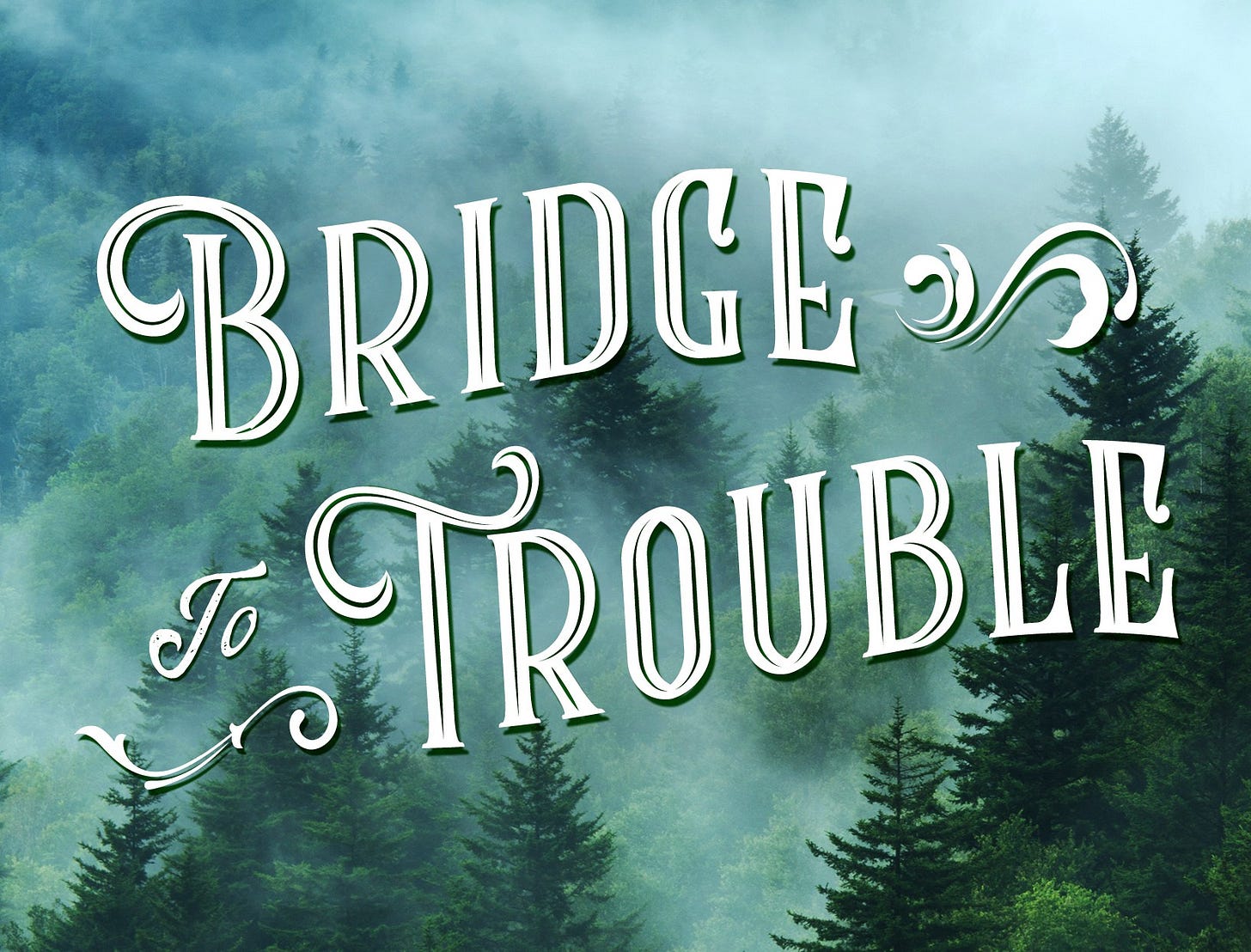Bridge to Trouble: Chapter IV
“You didn’t ask me to help, you told me I was helping,” I said with some asperity. “What else can I do, when you tell me my home is crawling with bandits?"
Bridge to Trouble is a romantic-suspense novella set in 1920s Montana.
Click here for the navigation page.
Who told you so, dilly dilly, who told you so?
I told me so, dilly dilly, I told me so.
- Lavender’s Blue -My sleep that night was undisturbed—such of it as there was, anyway. I lay awake for a good while with one ear turned toward my open windows listening for an automobile motor and trying to puzzle out the meaning of the tracks I had followed. But I fell asleep at last, and woke at a normal hour next morning.
After breakfast I walked down across the bridge again, as if I thought perhaps the tracks would yield something new from another viewing. I had only just stepped off the planking on the far side when I heard a noise dimly over the rush of the stream—a distant sound fading, flaring again, reverberating up through the woods. The instant I realized it was a motor I dashed forward and flung myself into a thicket of young pine off to the side of the road. Inwardly I burned to plant myself in the road and confront the motorist as bluntly as I had Keith Phillips, but the thought of that deliberately loosened boulder bounding down the mountainside spoke to my common sense. Getting a good look first at the man who had done that seemed the better part of valor.
Keep reading with a 7-day free trial
Subscribe to The Second Sentence to keep reading this post and get 7 days of free access to the full post archives.



